Photographs: Dipak Chakroborty/Rediff.com
West Bengal had a democratic election, but the build-up to it can hardly be called so, says Barun Roy
There couldn't have been a better example of India's democracy at work than the Election Commission of India's handling of the recent assembly election in West Bengal. The task was difficult but performed with such efficiency and diligence that one can't help but greet it with unqualified praise. It was a triumph of democracy that every Indian should be proud of.
But that's only one side of the story. The other side isn't a particularly savoury one and raises doubts if India can really be, in spirit, called a mature democratic nation.
For, the democratic battle in West Bengal between the two main protagonists, the Left Front and Trinamool Congress, was fought in a not so democratic manner and brought out the worst of our undemocratic instincts, and, thus, our biggest democratic challenges.
The attacks became personal
Image: Poll graffiti in a Bengal villagePhotographs: Dipak Chakraborty/Rediff.com
Both sides used threats and armed might to peddle their authority. People in many areas in rural West Bengal lived in constant political fear. Many were driven from home, or killed.
Arms proliferated, bomb-making became a cottage industry, vigilante camps mushroomed and extortion became an established political practice.
Political decency stooped to its lowest depths. Leaders on both sides used language that was openly abusive, lacked culture and belonged in the world of gangsters and criminals. Masks came off bhadraloks, campaigning became a slang fest and political speeches assumed the character of frenzied calls to war. Often, the attacks became personal.
Intolerance and disrespect were the accepted values. If rank partisanship and arrogance did the Leftists in and led them to an inglorious exit from power, the opposition treated them no better and refused to acknowledge they even existed.
A deliberate distortion of the truth
Image: Supporters of the Tata Nano plant in SingurPhotographs: Reuters
Mamata Banerjee and her lieutenants treated Buddhadeb Bhattacharjee like a pariah and subjected him to a kind of political ostracism that's unheard of in a democracy.
In fact, the entire campaign against his government was based on an unfortunate, but deliberate, distortion of truth. Singur and Nandigram might have given Mamata a convenient political handle, but in neither place was the government at fault.
Land in Singur, for Tata's Nano plant, was acquired legally (in accordance with existing law), with the concurrence of 83 per cent of the involved landowners, and after paying a compensation package that was, at that point in time, the best in the country.
The campaign turned into a 'jihad'
Image: A protest against the firing in NandigramIn Nandigram, acquisition was considered, but the idea was abandoned even before the process could start, Buddhadeb promising that no chemical hub would be set up there.
But his was a cry in the wilderness. Having sniffed political blood, Mamata was in no mood to listen. Her campaigns became increasingly vitriolic and aggressive.
Buddhadeb was portrayed as a dirty land grabber out to rob poor farmers of all their fertile lands to please private tycoons. The more he denied her allegations, the more she bayed.
When certain "intellectuals" -- painters, writers, actors, dramatists, retired civil servants, equally averse to truth and fired with the same ambition of booting the Communist Party of India - Marxist out by any means -- joined the fray, the campaign turned into a jihad, where people waited to be liberated from a hated tyrant.
Truths about Singur and Nandigram were lost forever
Image: Former Bengal CM Buddhadeb BhattacharjeeAnd, when the police, unwisely, opened fire to tackle a combative crowd in Nandigram, killing 14 villagers, Buddhadeb was accused of genocide and regime change no longer remained a simple democratic desire. Some went to the extent of calling it a second war of independence.
In the hysteria that followed, when skeletons from the CPI-M's often murky past were being systematically dug up with crusading zeal, the truths about Singur and Nandigram were lost forever from public memory.
Even economists, who had earlier thought the chief minister was right with his industrial policy, wouldn't back him any more. Incumbency became a crime. Boycott of the government and destruction of its legitimacy became the only desirable goal.
Rumours were deliberately dressed up
Image: Mamata Banerjee takes oath with West Bengal Governor M K NarayananPhotographs: Jay Mandal/On Assignment
Could the opposition have fought Singur and Nandigram in a court of law, as would have been the right democratic thing to do? No, because there was no case.
Were the Leftists victims of their failure to communicate well with the people? Yes, but when hysteria is in the air and rumours are deliberately dressed up as truth, who would listen? Or believe?
So, Trinamool's siege of a national highway and Mamata's rampage in the assembly House in the wake of Singur, for which there wasn't even an apology, were written off as genuine expressions of protest.
It was even convenient for many to forget that the agreement reached at the Raj Bhavan between Buddhadeb and Mamata was for returning to farmers the maximum possible of the acquired Singur land, not 400 acres as Mamata kept claiming.
So, yes, West Bengal has had a democratic election all right, and a much-awaited change of regime, but the build-up to it could hardly be called democratic; and continuing post-poll violence suggests that the follow-up isn't any different either.

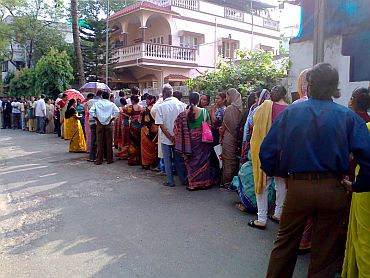
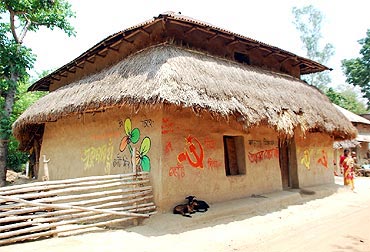
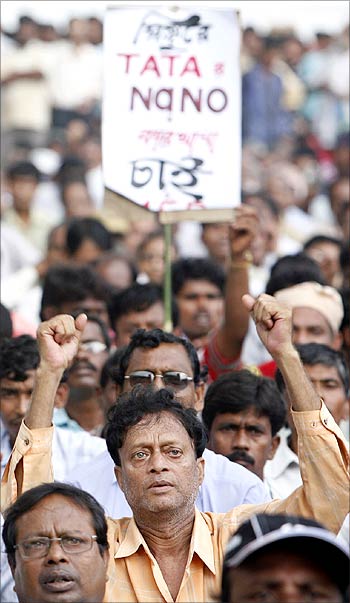
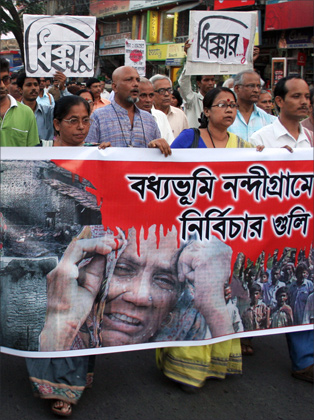
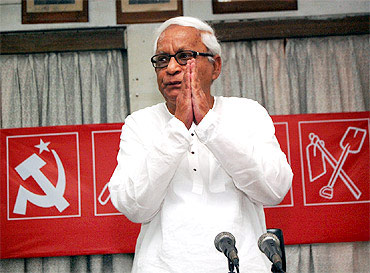
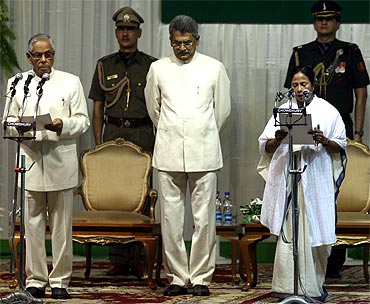
article